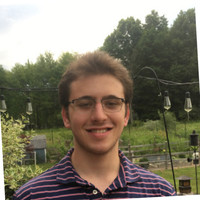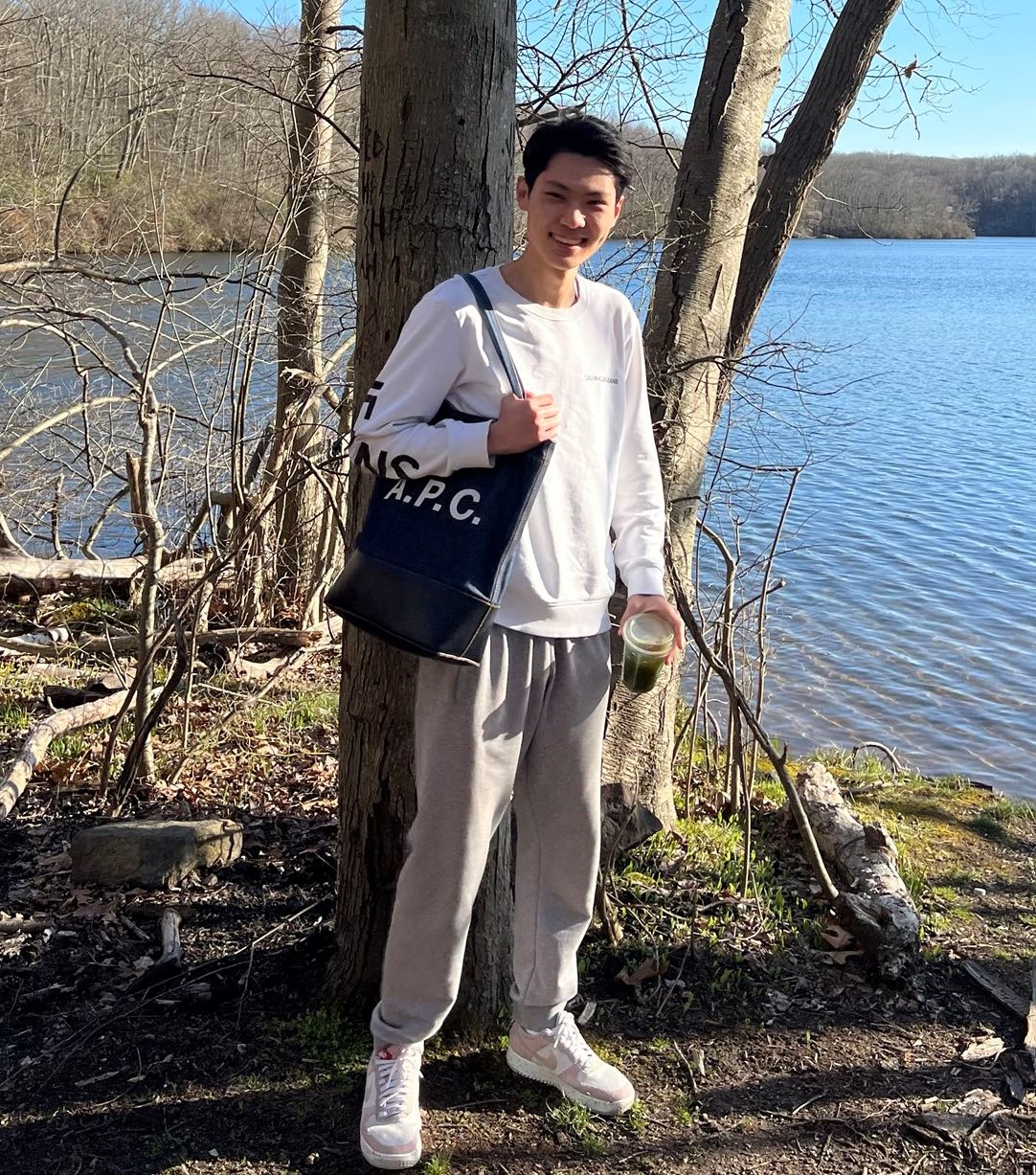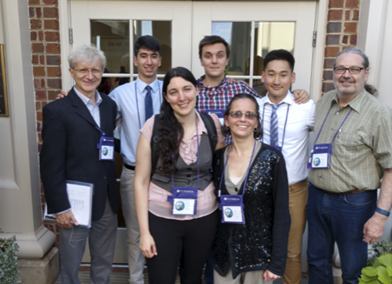The Labratory Team:

In Sub "Mark" Han
In Sub Han: Lab Associate
Class Year(s): Vassar College, 2015, B.A. Chemistry
Weill Cornell Medicine, 2017, M.S. Biomedical Sciences
Major(s): Chemistry, Physiology, Biophysics, Systems Biology
Minors/Certificates: Physics, ACS Certification
In Sub M. Han is a research specialist in molecular dynamics simulations, with bachelor’s degree from Vassar College in chemistry and a M.S. from Cornell University in Biomedical Sciences. During his graduate studies at Weill Cornell Graduate School of Medical Sciences (WCGS), Mark specialized his trainings in molecular biophysics and computational biomedicine. He rotated in a diverse array of labs to grasp a deeper understanding of proteomic systems as points of tackling pathogenesis, focusing on GPCR membrane proteins. He is currently a research associate at the Thayer Lab at Wesleyan University’s College of Integrative Sciences, working on exciting new projects that brings together the field of protein crystallography, electrophysiology, cancer genomics and computational biophysics research. He aims to implement novel statistical machine learning and network methodologies to elucidate previously unstudied properties of p53 dynamics under a drug design paradigm.
Email Me at ihan01@wesleyan.edu

Dylan Abramson
Dylan Abramson is a machine learning engineer specializing in the study of protein dynamics and small molecule property prediction. He received both his BA and MA from Wesleyan University where he used graph theory and encoder/decoder architectures to study protein allostery. Currently, Dylan is a Machine Learning engineer at VantAI where he uses geometric deep learning to help accelerate drug discovery pipelines.
Email Me at dabramson@wesleyan.edu
Isabel Armour-Garb
Isabel Armour-Garb: Alumnus, Lab associate
Class Year(s): 2022
Major(s): Computer Science, Mathematics
Minors/Certificates: Informatics and Modeling.
Research interests: Broadly, my research interests are in using computational methods to answer biological questions.
In the ThayerLab, my research has been focused on studying the isoforms of p53 through molecular dynamics simulations
and analysis.
In recent years, there have been many advancements in interdisciplinary work that utilizes both computer science and
its principles. One such area lies at the intersection of biology and computer science and is known as “bioinformatics”
or “computational biology”. Computational biology methods have enabled scientists to ask questions that would have been unanswerable prior to the rise of high-performance computing.
My thesis explores the application of high-performance computing and parallelizable algorithms to protein folding
and dynamics. My research serves to explore the behavior of the full-length wildtype p53 protein and its isoforms in order to learn about their potential
regulatory effects by utilizing high-performance computing techniques.
Email Me at iarmourgarb@wesleyan.edu

Qunzhe Lin
Qunzhe Lin, undergraduate, class of 2023. Currently majoring in Computer Science, Mathematics, and Economics. I joined the lab in the summer of 2022. I'm interested in machine learning related fields and currently, I'm studying Deep Reinforcement Learning methods for finding alternative molecules of pk11000 to reactivate p53 Y220C. In the future, I would keep working in this direction and potentially add some improvements to the current methods.
Email Me at qlin01@wesleyan.edu

Sean Stetson
Sean Stetson '25 is a prospective Computer Science and Mathematics double major. He joined the lab starting in the summer of '22 and has begun researching where Mark Han left off – analyzing the allosteric pathways and conformational changes of the y220c p53 protein. By understanding and exploiting how and why p53 may or may not signal a cell to repair itself or perform apoptosis, he hopes he can contribute to the effort of finding a molecular-based cure for many different types of cancers.
Email Me at sstetson@wesleyan.edu

Christopher Chiu
Christopher Chiu, undergraduate, class of 2025. I am a prospective computer science and art major and I am the Webmaster of the Thayer Laboratory Website. I joined the lab in the summer of 2022 thanks to a generous grant from Professor Thayer and was tasked with learning HTML and CSS to spread word of the important research that is conducted at the Thayer Laboratory. I am always happy to continue my studies of website development, as developing websites is a perfect intersection between Computer Science and Art. I will add to the website periodically and spread the discoveries of the Thayer Laboratory.
Email Me at cchiu01@wesleyan.edu
Previous ThayerLab Members:
* = thesis project awarded honors.
-
Ava Nederlander*, B.S. Computer Science and College of Integrative Sciences, Wesleyan University, 2022.
"Framework of Deep Learning for Object Detection: 2DRMSD Conformational Analysis." -
Jonathan Fabry*, B.S. Computer Science, Wesleyan University, 2020.
Mathworks Inc, Waltham, MA. -
Rujun Yan, B.S. Computer Science, Wesleyan University, 2022. "Tensors for Alpha Helical Peptides."
UCSD Graduate Student, San Diego, CA. - Randall Tyng, B.S. Economics, Wesleyan University, 2022. "p53 Data Analysis and Machine Learning."
-
Hanna O'Halloran, B.S. Biology, Wesleyan University, 2020. "Molecular Dynamics and Drug Discovery." (co-mentored David R. Langley)
Sloan Kettering Cancer Center - Yizhuang Lin, B.S. Computer Science, Wesleyan University, 2022. "Streamlining and Testing Convergence of Moleclar Dynamics Simulations."
-
Alex Pachter, B.S. Computer Science, Wesleyan University, 2021. "Coding MD-Markov State Models"
Senior Associate Software Engineer, Capital One, Brooklyn, New York. -
William Humphrey, B.S. Economics, Wesleyan University, 2021. "MD-Markov State Models of p53 Dynamics."
Biotech Equity Research Associate, Morgan Stanley, New York, NY. -
Kendar Serindag*, M.A. Molecular Biology and Biochemistry, Wesleyan University, 2020. "Development of a Cryo-EM Platform: Computational and Molecular Biology Approaches"
(co-mentor David R. Langley) -
Daniel J. Chung*, B.A. Molecular Biology and Biochemistry, Wesleyan University, 2020. "MD-Markov State Models of GPX-4 For Drug Design."
(co-mentor David Langley) Business Operations and Strategy Analysist, Quartet Health, New York, NY. -
Anastasia Saar, B.A. Chemistry, Wesleyan University, 2020. "MD-Markov State Models of Mutations in MutS: Understanding Allossteirc Signalling."
(co-mentored with David L. Beveridge) Ph.D. Candidate, Yale University, New Haven, CT. -
Miranda L. Nestor, B.A. Chemistry, Wesleyan University, 2020. MD-Markov State Models of CAP: MD-MSMs for Allostery without a Conformational Change."
Dana Farber Cancer Institute, Boston, MA. -
Avram Stein, B.A. Computer Science, Wesleyan University, 2017. "Probability of Signaling Pathways in Proteins."
Data Engineer, Policygenius Inc, New York. - Jesse Galganov, Wesleyan University, 2017. "Probability of Signaling Pathways in Proteins."
- In Sub Mark Han*, Chemistry, Vassar College, 2015. "A-Tract Motifs in p53 Recognition of Binding Sites."
-
Benjamin Slaw*, Vassar College, 2015. "Indirect Readout of p53-DNA Binding Site Recognition through Dynamical Machine Learning."
-University of Chicago Dept of Chemistry. Ph.D. candidate -
Taylor R. Quinn*, Vassar College, 2015. "p53 R175H Hydrophobic Patch adn H-Bond Reorganization Observed by MD Simulation."
-Ph.D. University of Notre Dame. Current Senior Scientist at Astra Zenica -
George Beyer*, Vassar College, 2015. "Energetic Landscape of MDM2-p53 Interactions by Computational Mutagenesie of the MDM2-p53 Interaction Interface."
Orthopaedic Surgery Resident at SUNY Downstate - Miles Alsopp-Shiner, Spring 2017, Wesleyan University. “Explorations in Python Coding of Machine Learning Tools.”
-
Leticia Costa, 2019 to 2020, Wesleyan University. “Kinetic Energy Distribution in Allosteric Protein Signalling.”
(Jointly mentored David L. Beveridge) Ph.D. Candidate at Massachusetts Institute of Technology -
Haley Rugh, Wesleyan University and UPenn, 2016. “Molecular Dynamics Simulations of Calmodulin Allosteric Regulation.”
(Jointly mentored with David L. Beveridge) Ph.D. Candidate at Cornell University -
Cassidy Carpenter, Vassar College, 2015. “Construction of the p53 Tetrameric Structure.”
Emergency Medicine Resident Physician, Baystate Health, San Francisco, CA -
David S. Wallach, Vassar College, 2015. “Analysis of H-bonding Interface between p53 and DNA.”
Bioinformatician at Icahn School of Medicine, Mount Sinai School of Medicine, New York. -
Liat Kugelmass, Vassar College, 2015. “Computational Mutagenesis of p53.”
Cornell University -
Noah N. Trueblood, Vassar College, 2015. “Molecular Modeling and Energetics of Biological p53-DNA Constructs.”
Data Engineer at Cofactr, Boston, MA - Benjamin Blair,B.A. Chemistry, Vassar College, 2015. “Gaussian Quantum Mechanical Calculations of p53 Small Molecule Therapeutics.”
-
Claudia Carcamo, Vassar College, 2015. “Homology Modeling of the Structure of p53 Homologs.”
Ph.D. Candidate at Johns Hopkins University School of Medicine, Baltimore, MD - Randy Guertin, Vassar College, 2014. “Structural Analysis of p53 and Cancerous Mutations.”
-
Lisa Je, Vassar College, 2014. “Structural Analysis of p53 Mutants Involving Loss of Zinc.”
Ph.D. candidate University of Wisconsin, Madison, WI. - Geoffrey Matthes, Chemistry, Vassar College, 2015 “Bioinformatic Analysis of p53 Target Binding Sites.”
